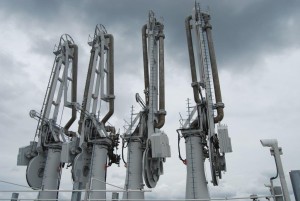By Peter Galuszka
The Sturm und Drang to which utility executives, coal companies and politicians have subjected Virginians as they oppose President Barack Obama’s Clean Power Plan to reduce carbon emissions has always been a deliberate distraction from what’s really happening.
According to them and their confederates at the State Corporation Commission and the state Department of Environmental Quality, the clean air act which seeks to reduce carbon dioxide emissions by a certain date is a foolhardy, ill-intended bureaucratic effort to put coal out of business and slap ratepayers with bigger bills.
I had a moment of clarity when I read this morning’s Local Opinions page in The Washington Post and a saw an article by Jon B. Wellinghoff. He is the immediate past chairman of the Federal Energy Regulatory Commission so he likely knows a little about energy.
His argument is that basic economics go against the electricity and coal industries’ arguments that reducing carbon will be too expensive. He cites a study by PJM, the large electricity grid of which Virginia is a part. “PJM announced this week that Virginia’s energy costs would be lower under the CPP than without it,?” he writes.
Why so? Wellinghoff says that utilities like Dominion are riding a nice low price natural gas bubble. Gas in the U.S. is going for $3 per million British Thermal Units. How long it will last is the crucial question.
Natural gas costs three times as much in Asia and Europe and (knock, knock) guess which companies are scrambling to get a new set of terminals so they can export it? Electric utilities like Dominion, that’s who.
Dominion is pressing ahead to convert its Cove Point liquefied natural gas plant on the Chesapeake Bay kin Maryland so that it can export gas to Japan and India. Dominion is also pushing a controversial $5 billion pipeline from West Virginia gas fracklands to the southeast. A spur of it would run to port areas in Hampton Roads but if you suggest that maybe Dominion plans to export gas from it, the public relations people get a mite testy.
Wellinghoff doesn’t specifically identify Dominion’s plans but he says there are 14 gas expert terminals underway.
For Virginia ratepayers, that means that a cheap, local commodity will become an expensive, global commodity. The United States will export a commodity and import price volatility.
Who will make money by exporting gas and messing up domestic prices?Dominion, that’s who.
It’s import to remember that the low price gas bubble will pop someday. Therefore, the state needs to stop whining about going to renewables and start applying them. Utilities need to make it easier for homes and business to deploy solar panels and sell extra juice back tot he grid. The U.S. uses 40 percent of the power it generates because of inefficient grids. Virginia is No. 35 in terms of state energy efficiency. Where are efforts to improve this?
Virginia’s disappearing coal industry has been complaining for years that government regulation is driving it out of business. The truth is that coal seams are becoming too uneconomic to mine. Gas is eating its lunch. I went to a Platt’s coal conference a couple of years ago In Florida where I learned that gas would have to jump to something like $8 per million BTU to make Virginia coal profitable again.
That might happen is gas prices rise as Wellinghoff predicts. But he is right that the cadre of utilities are barking up the wrong tree.



